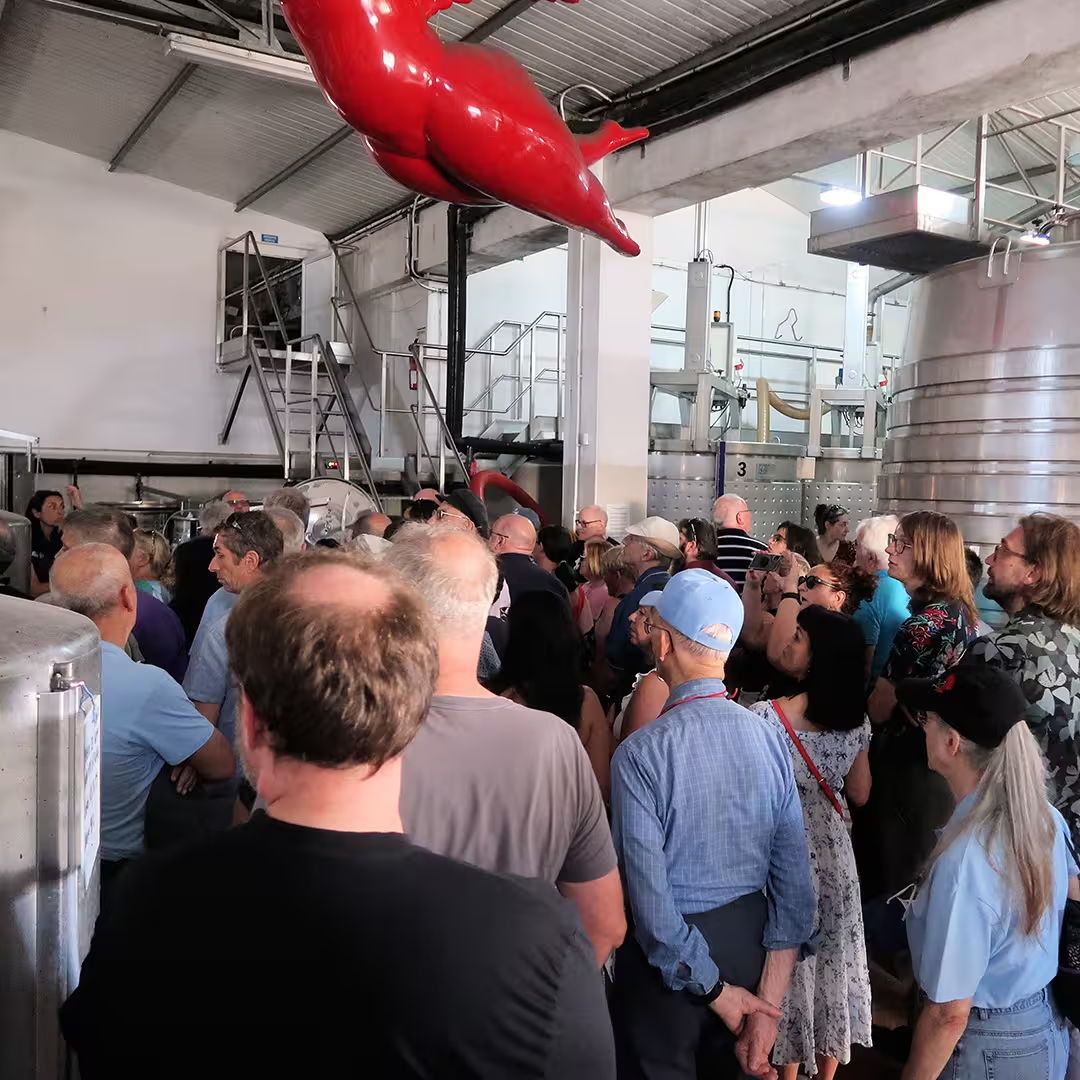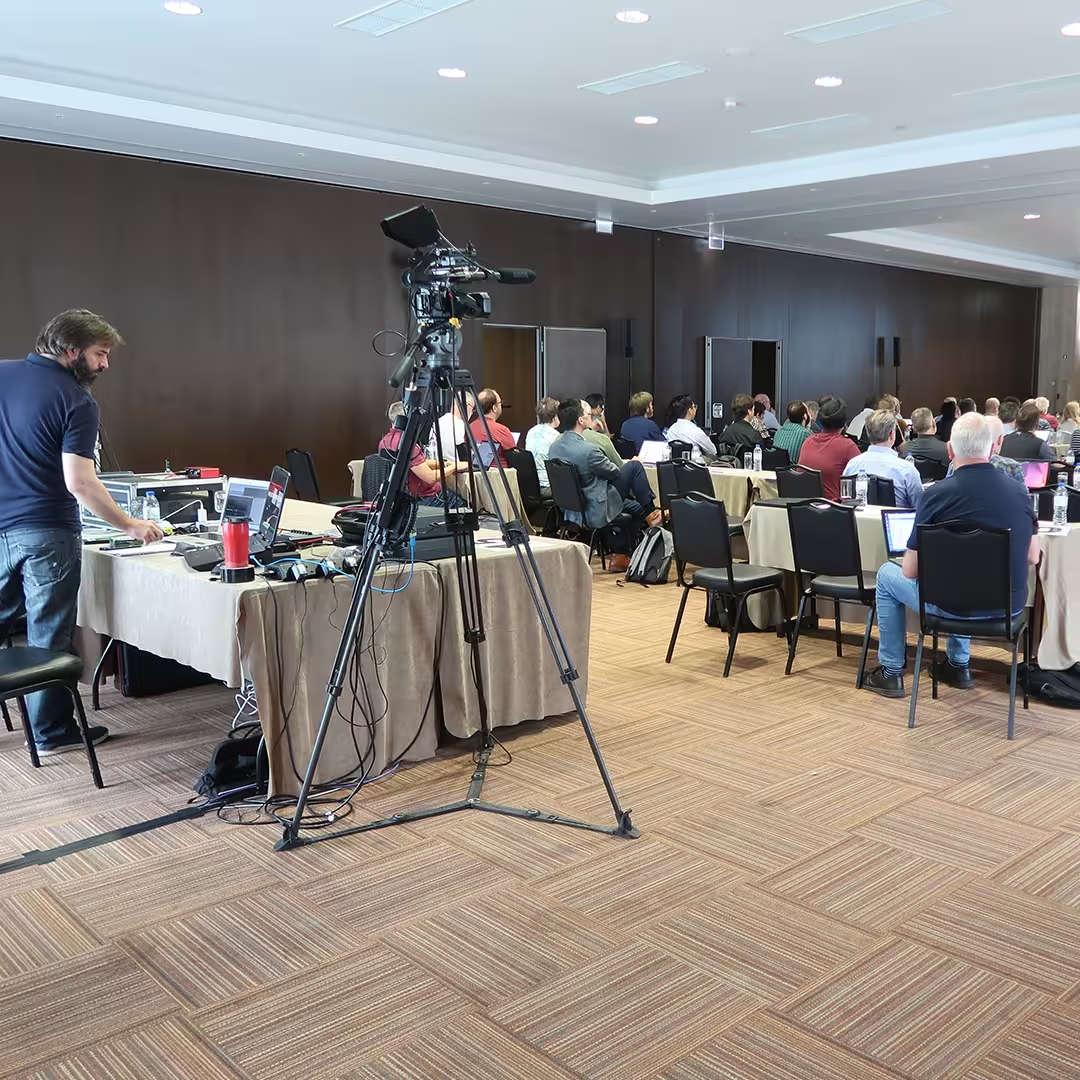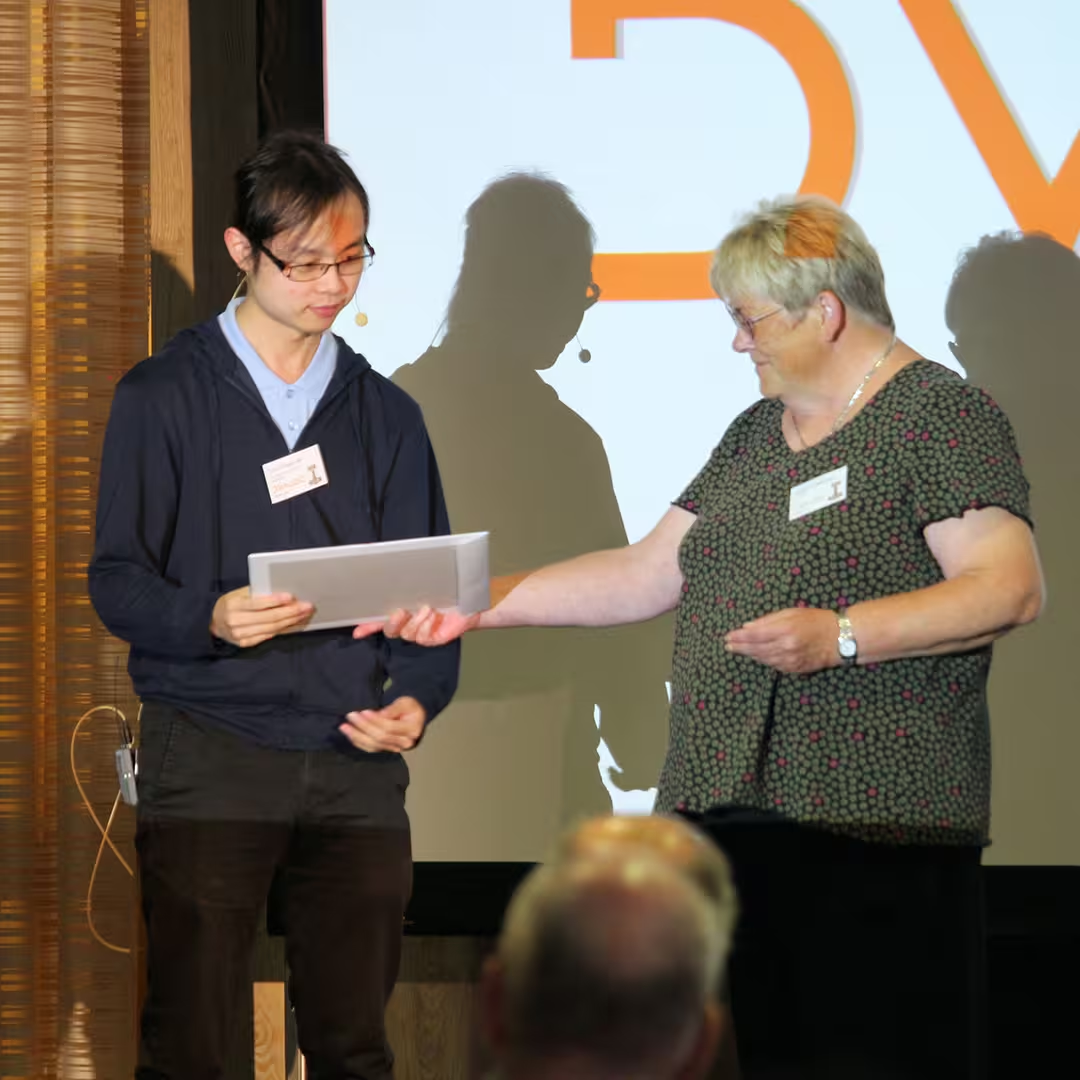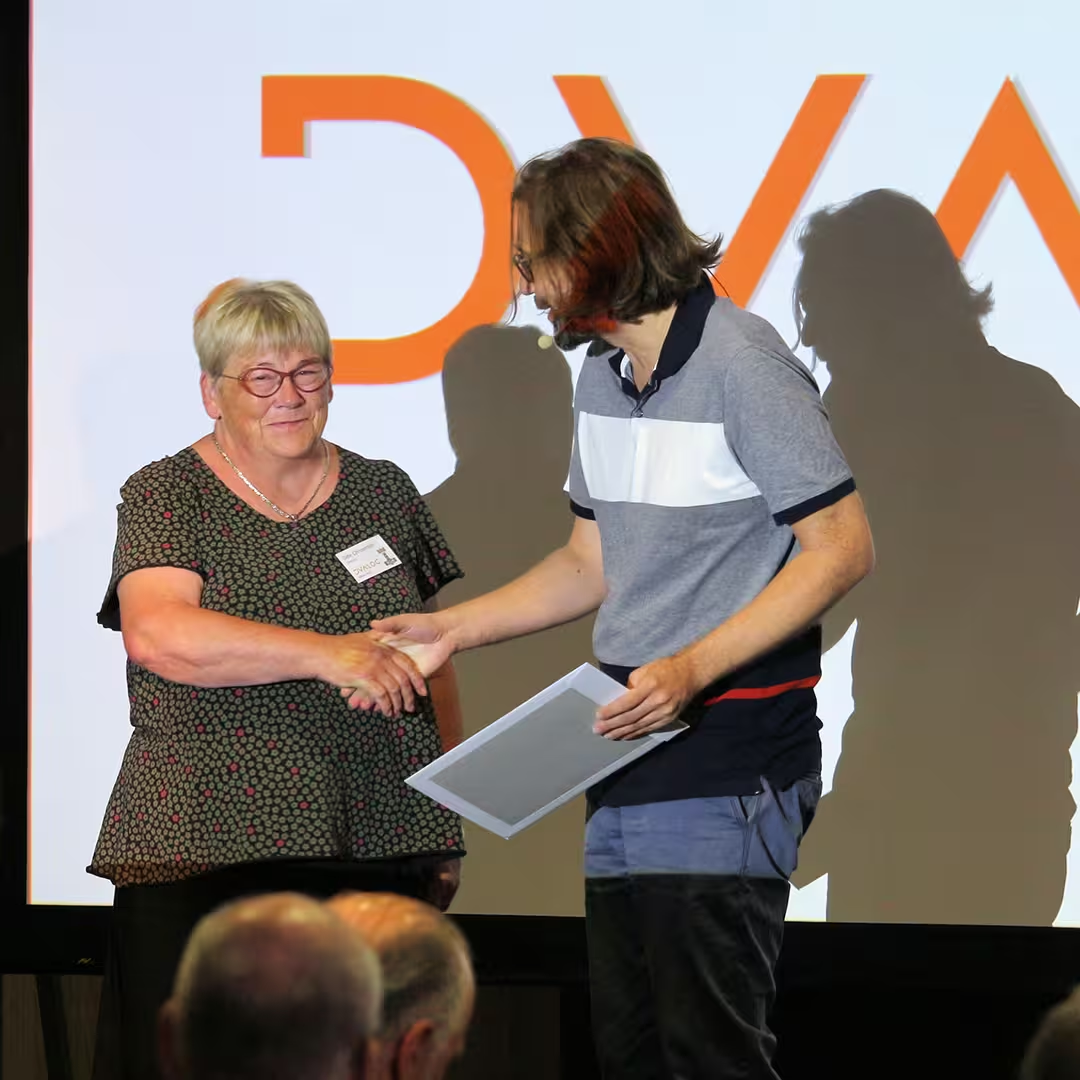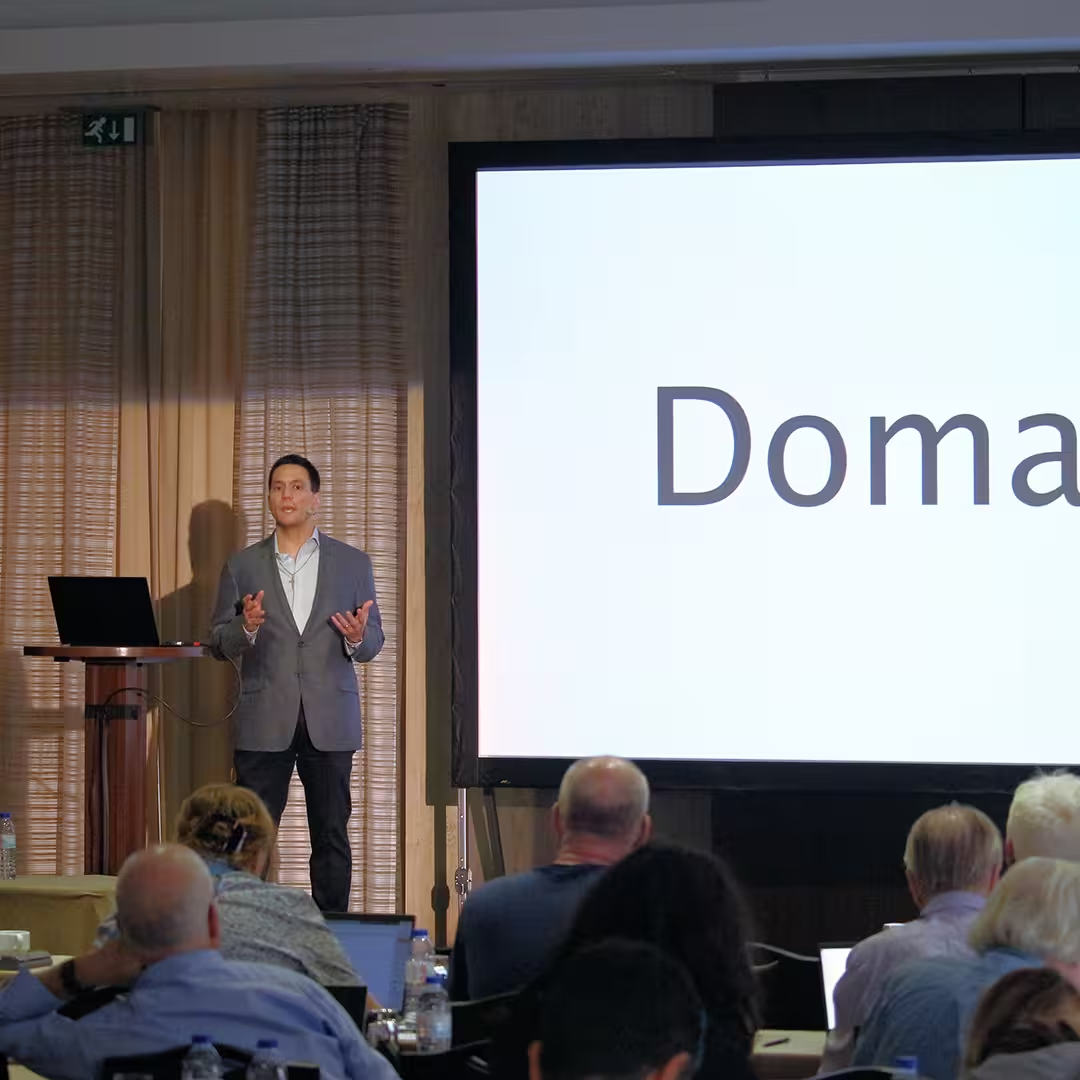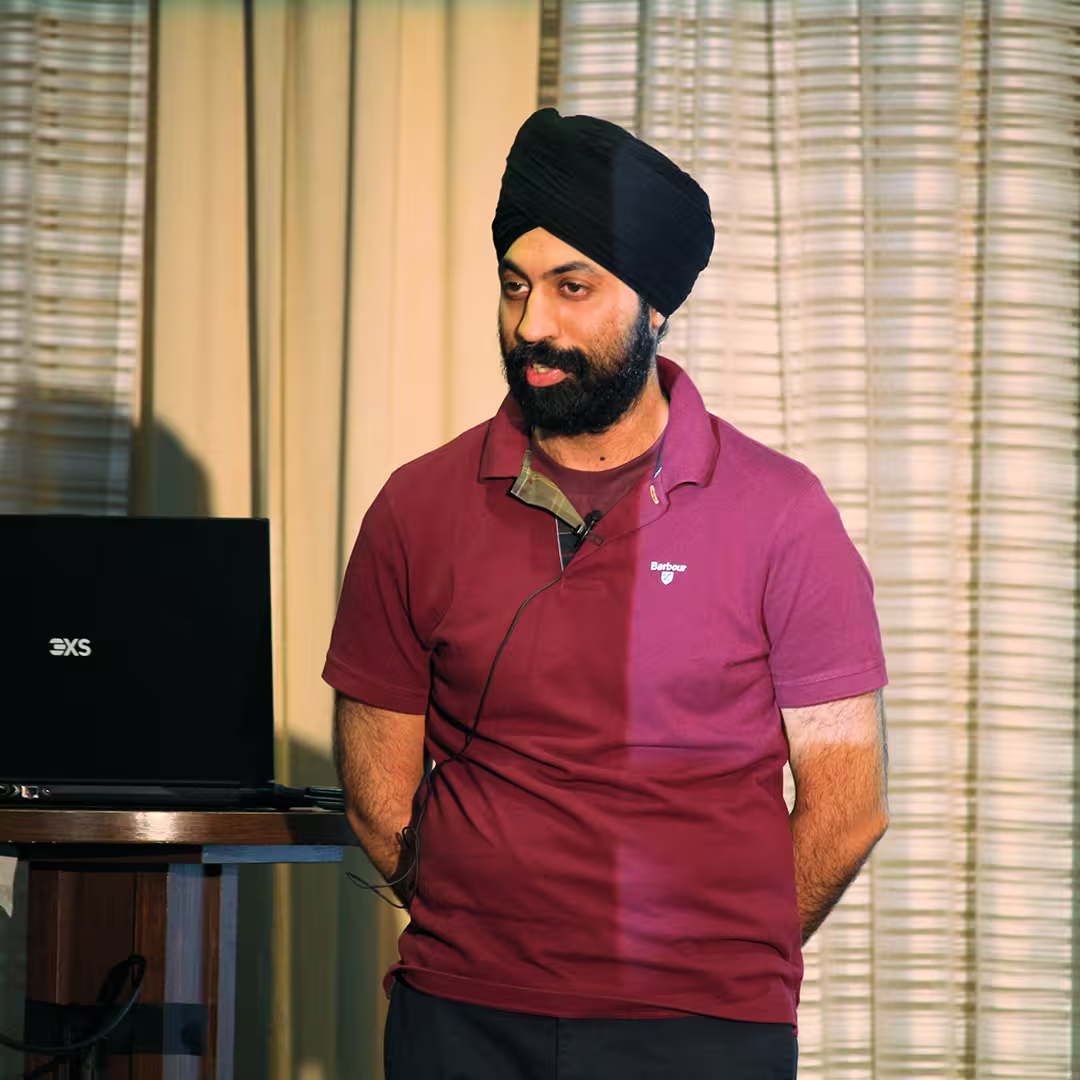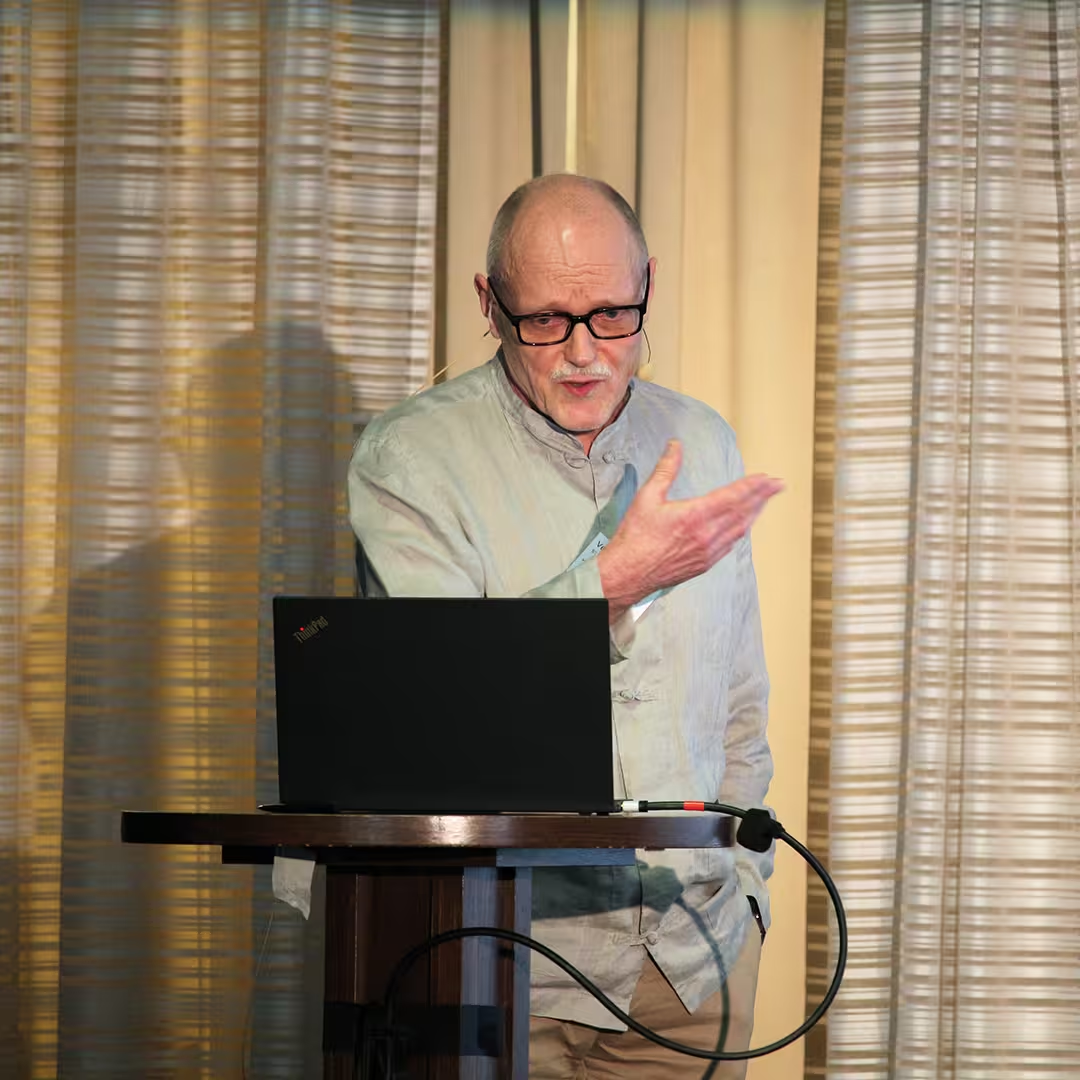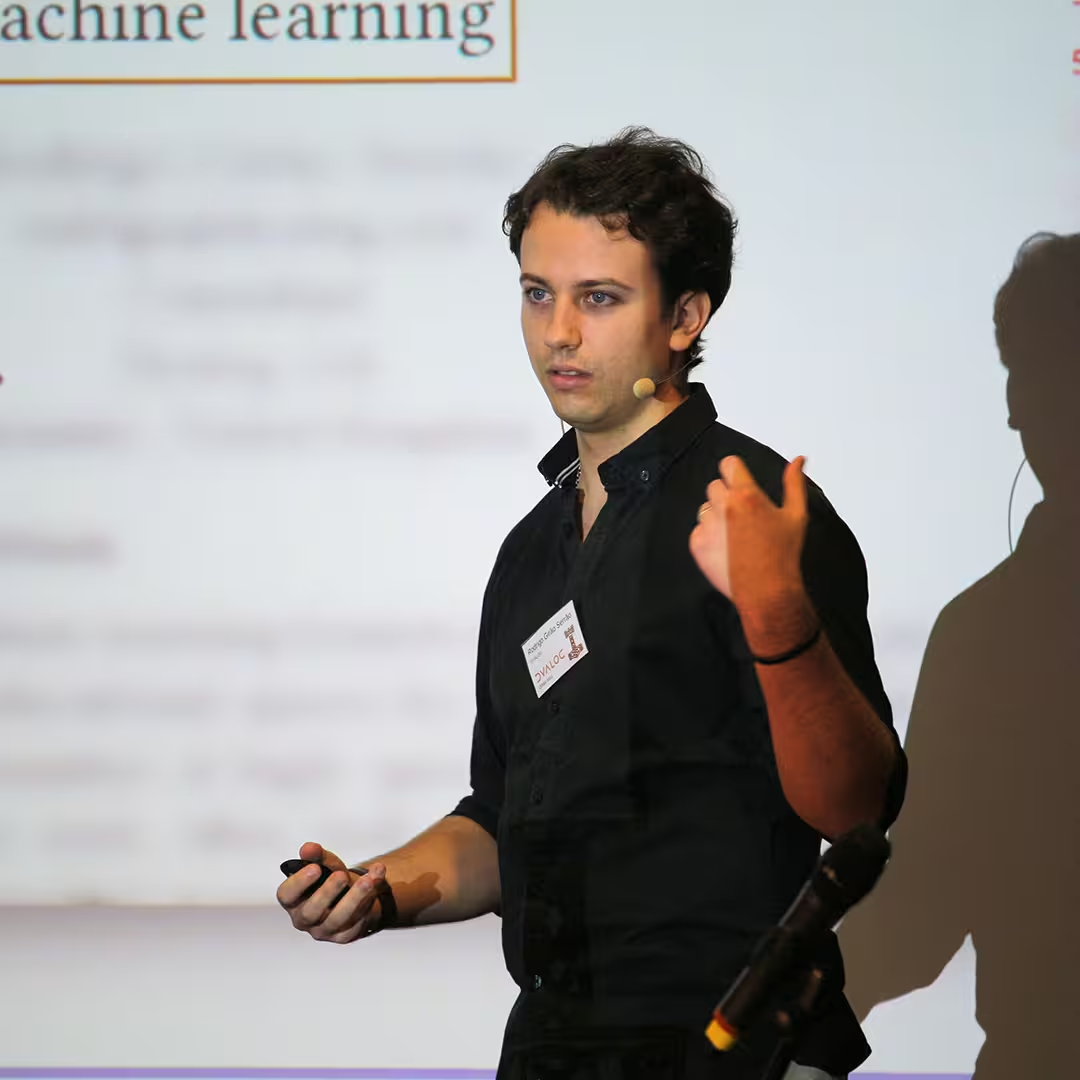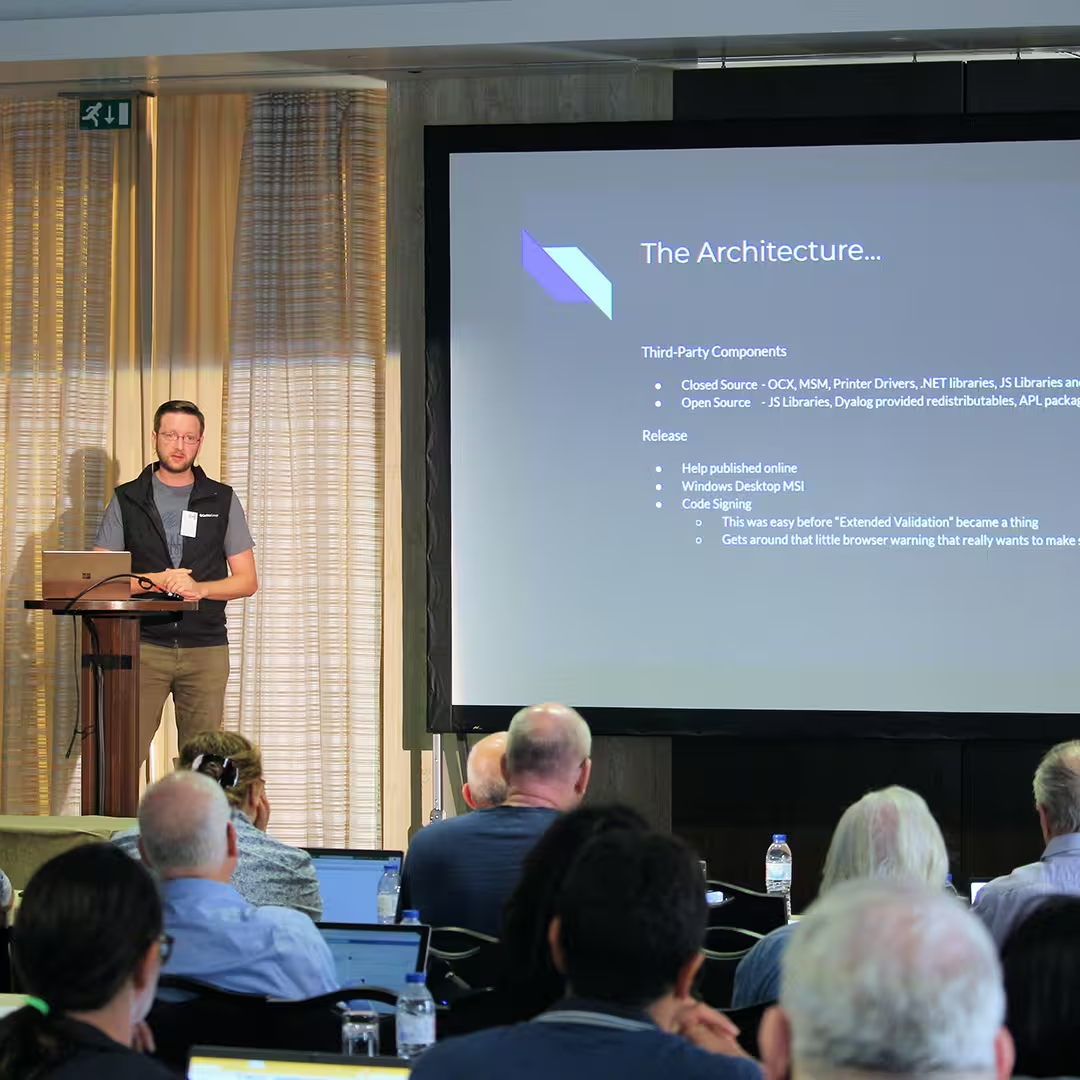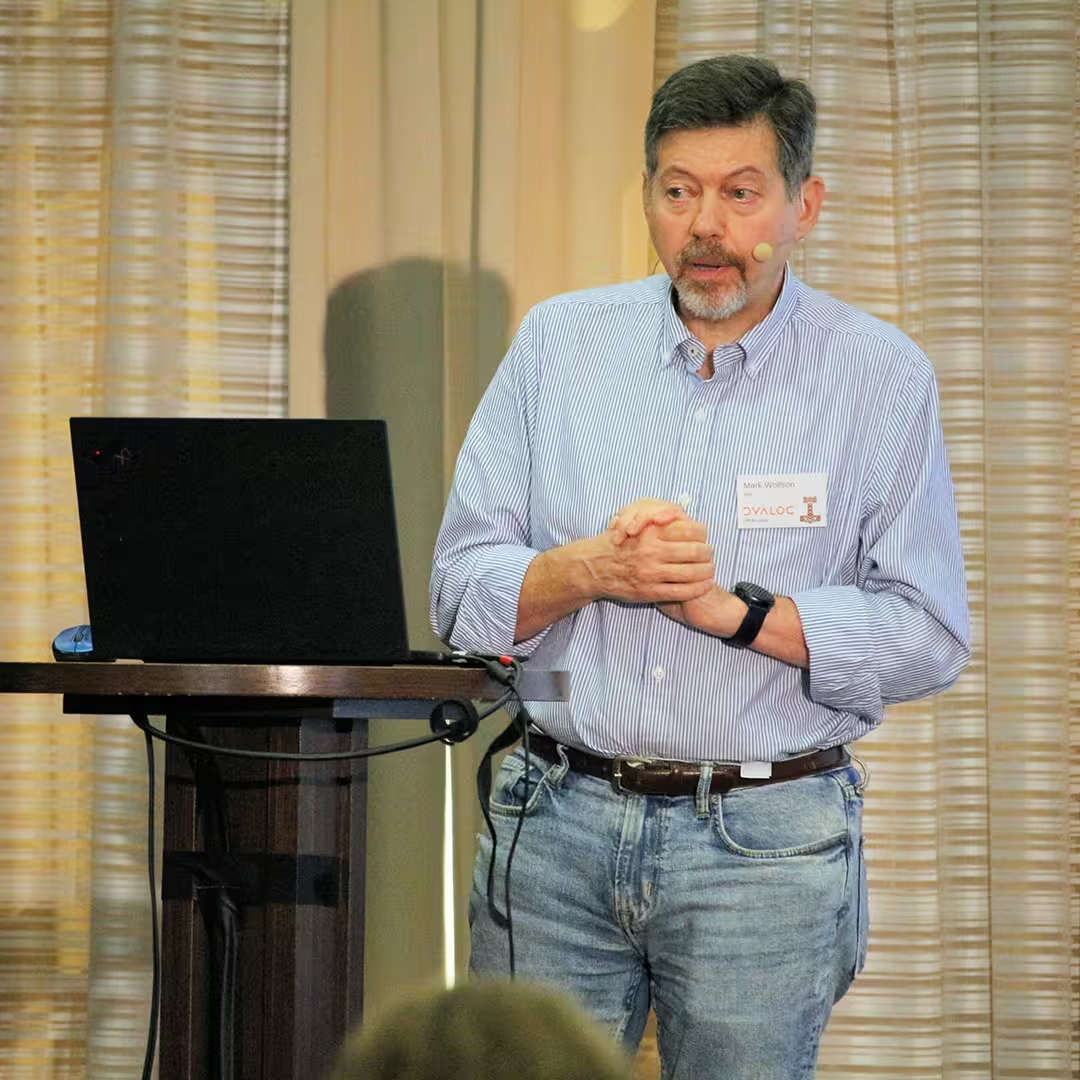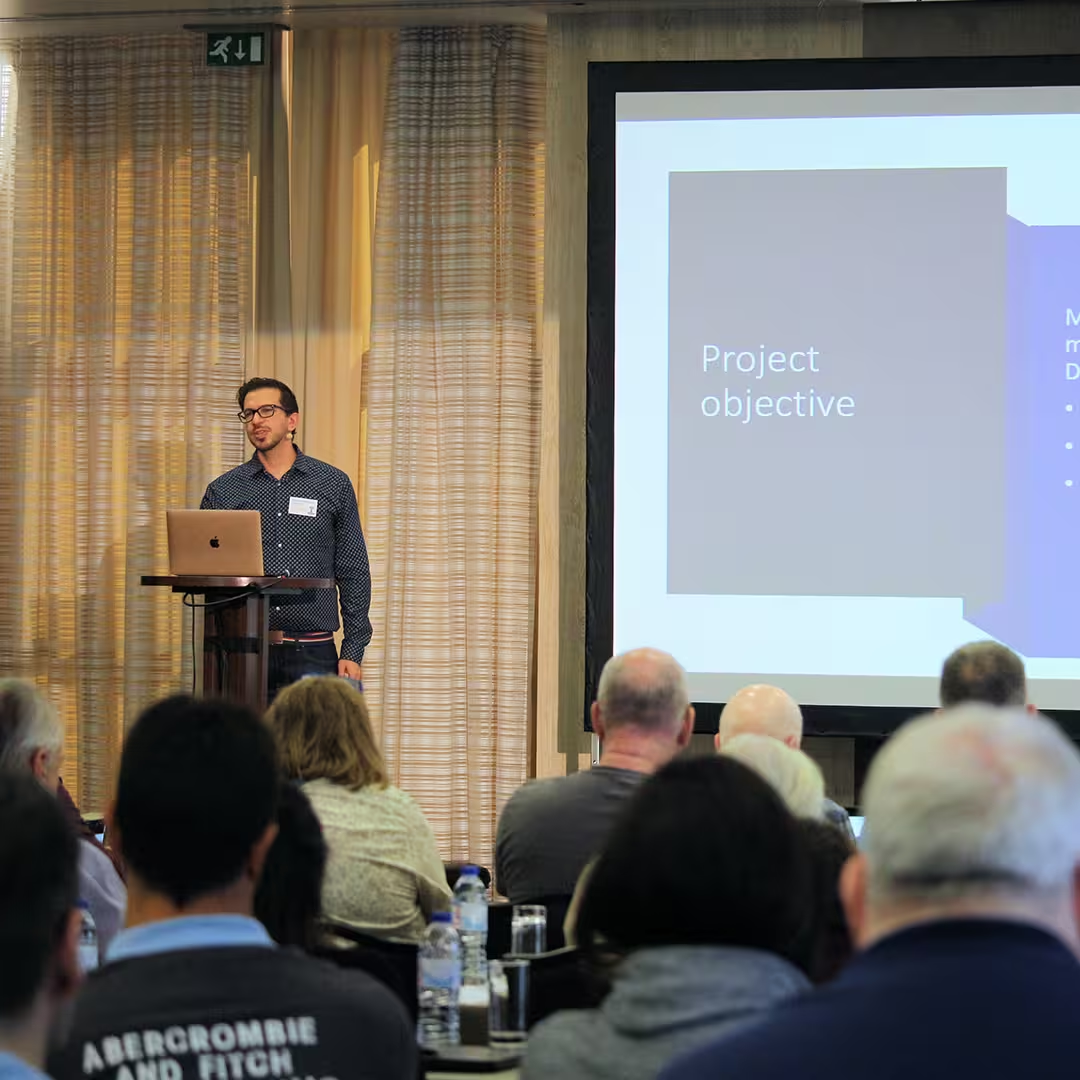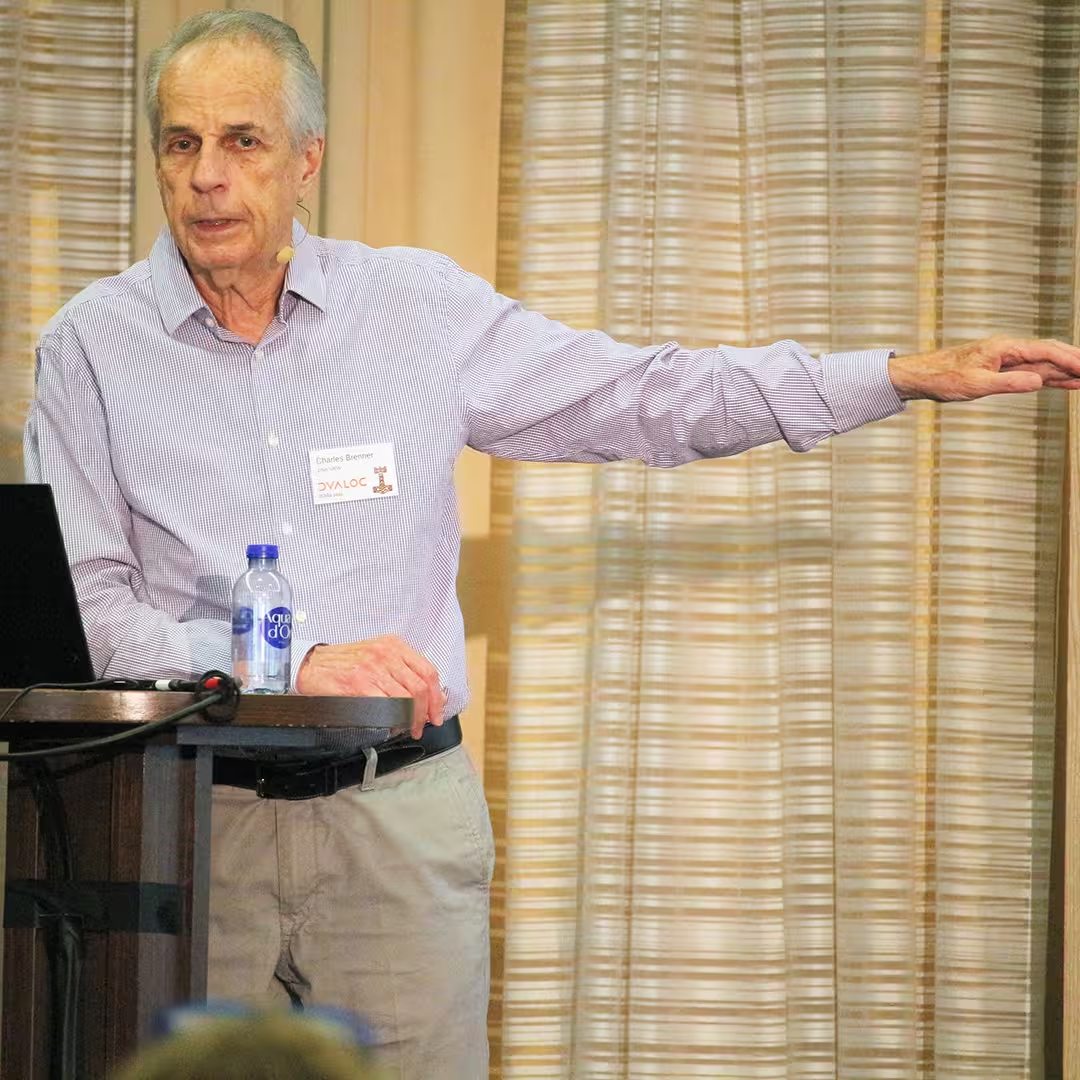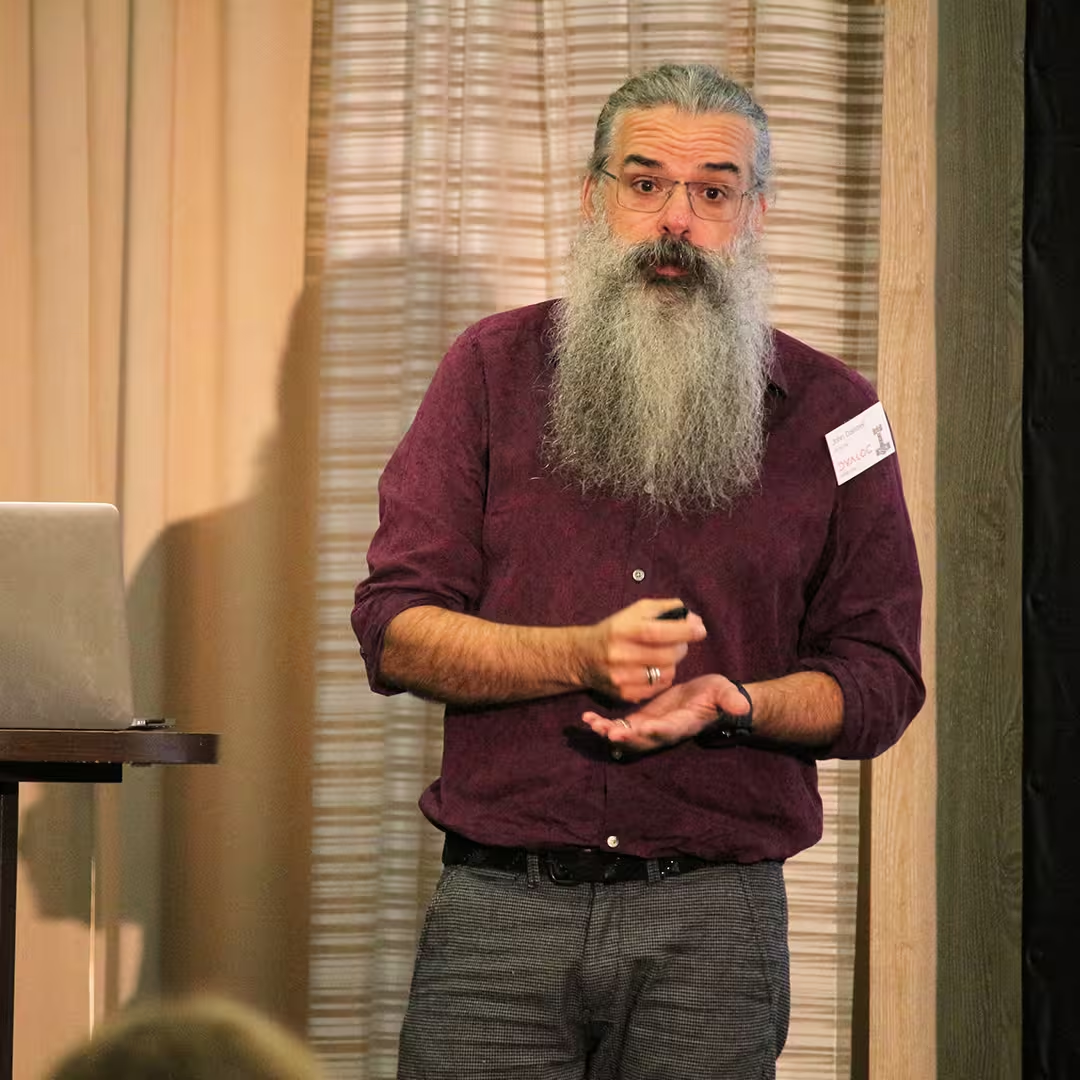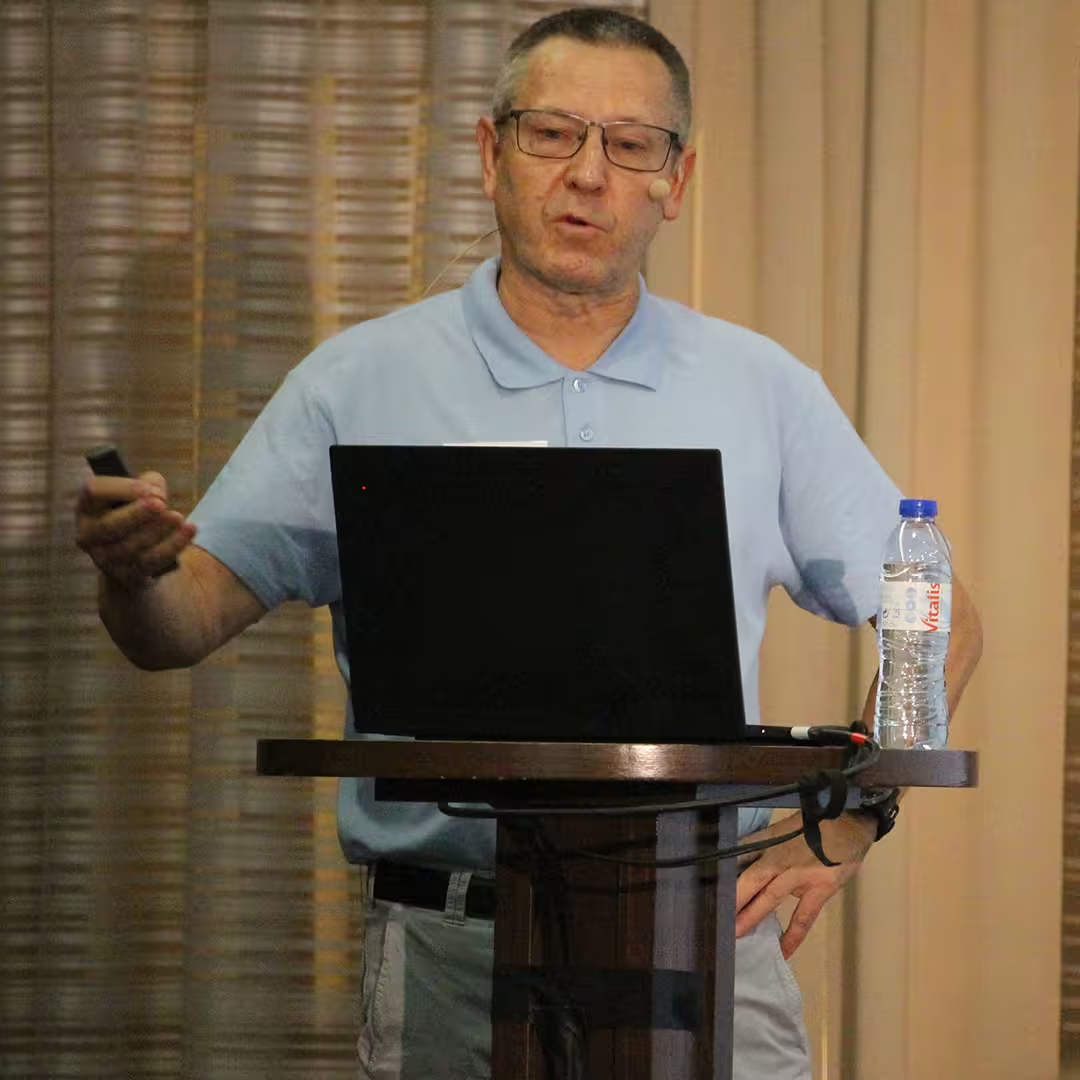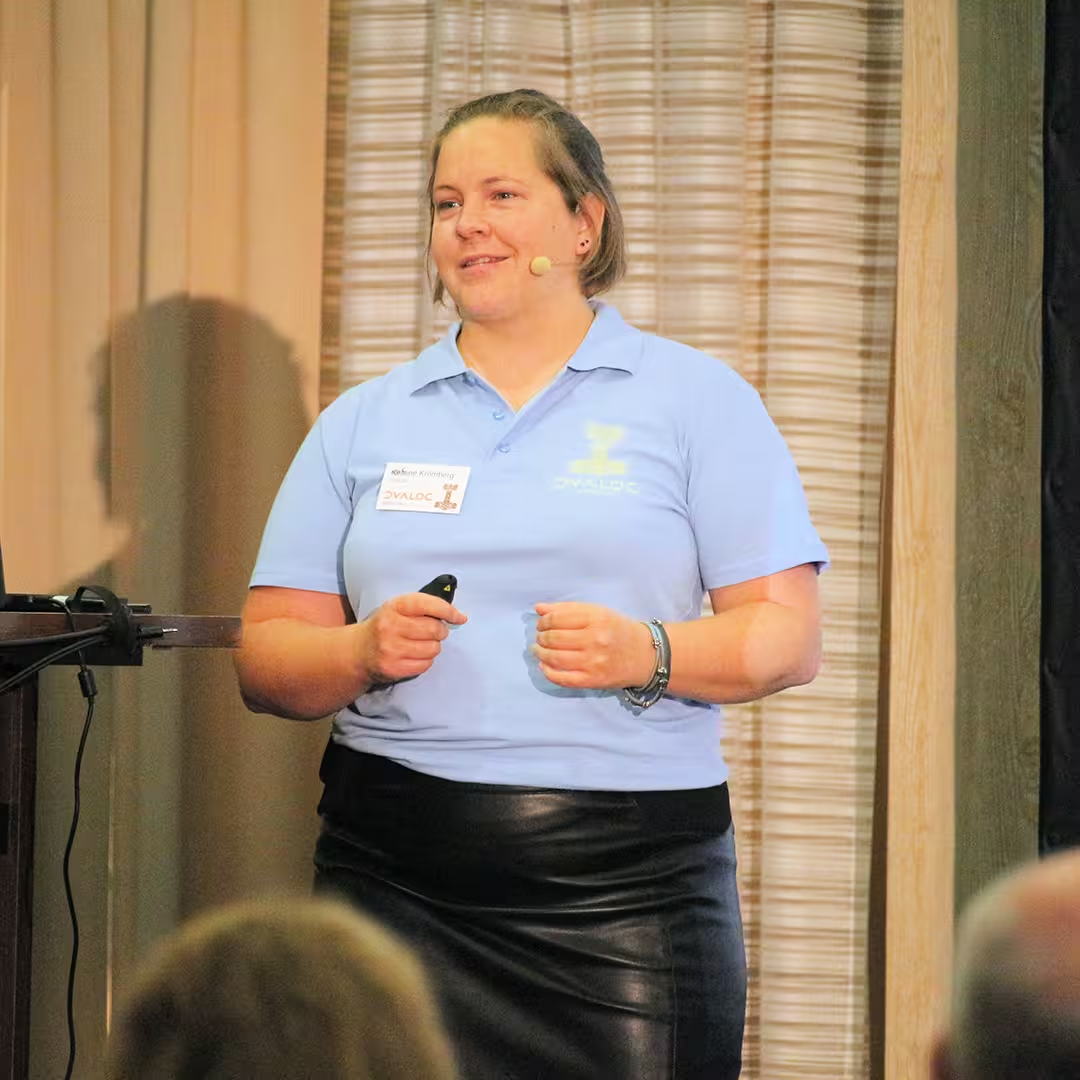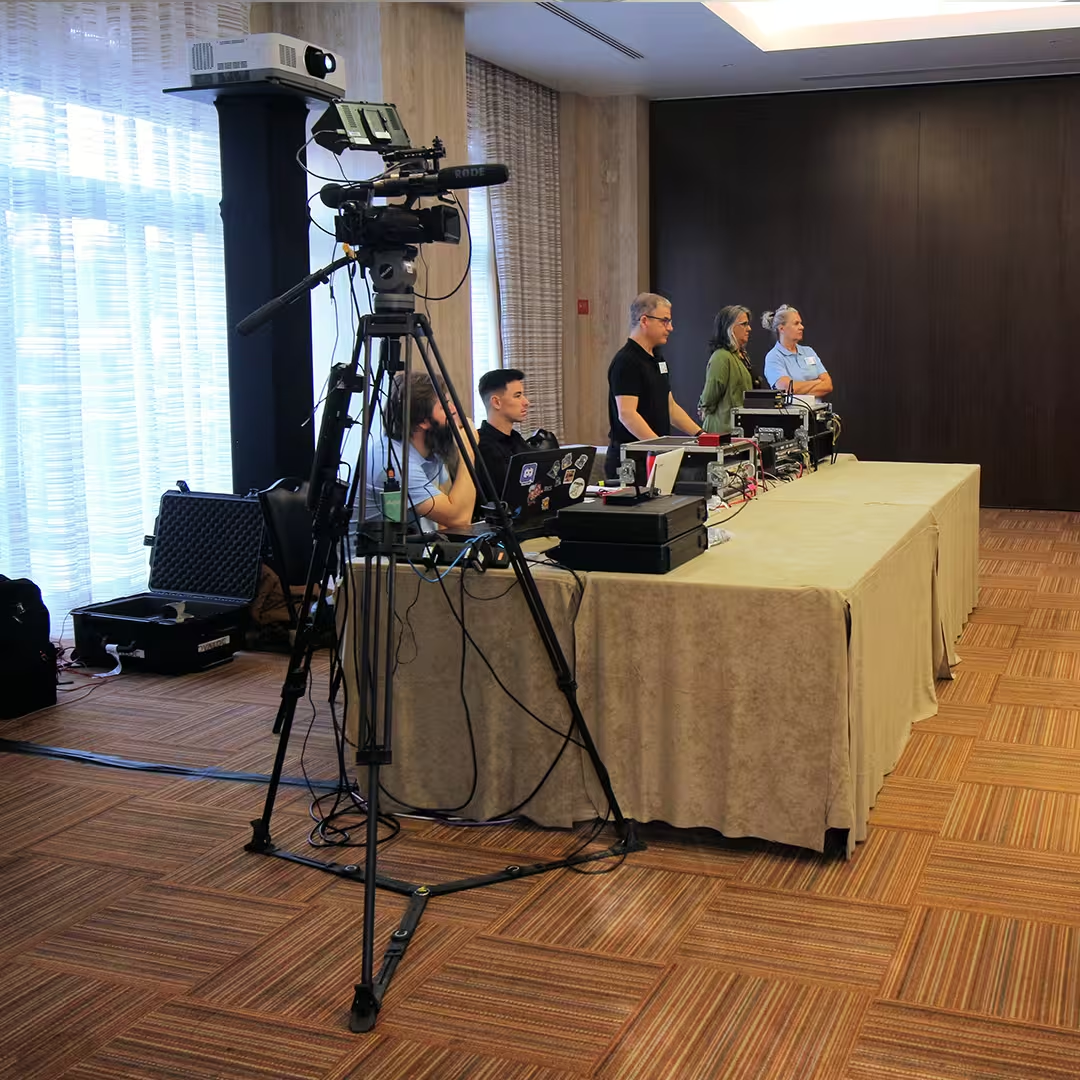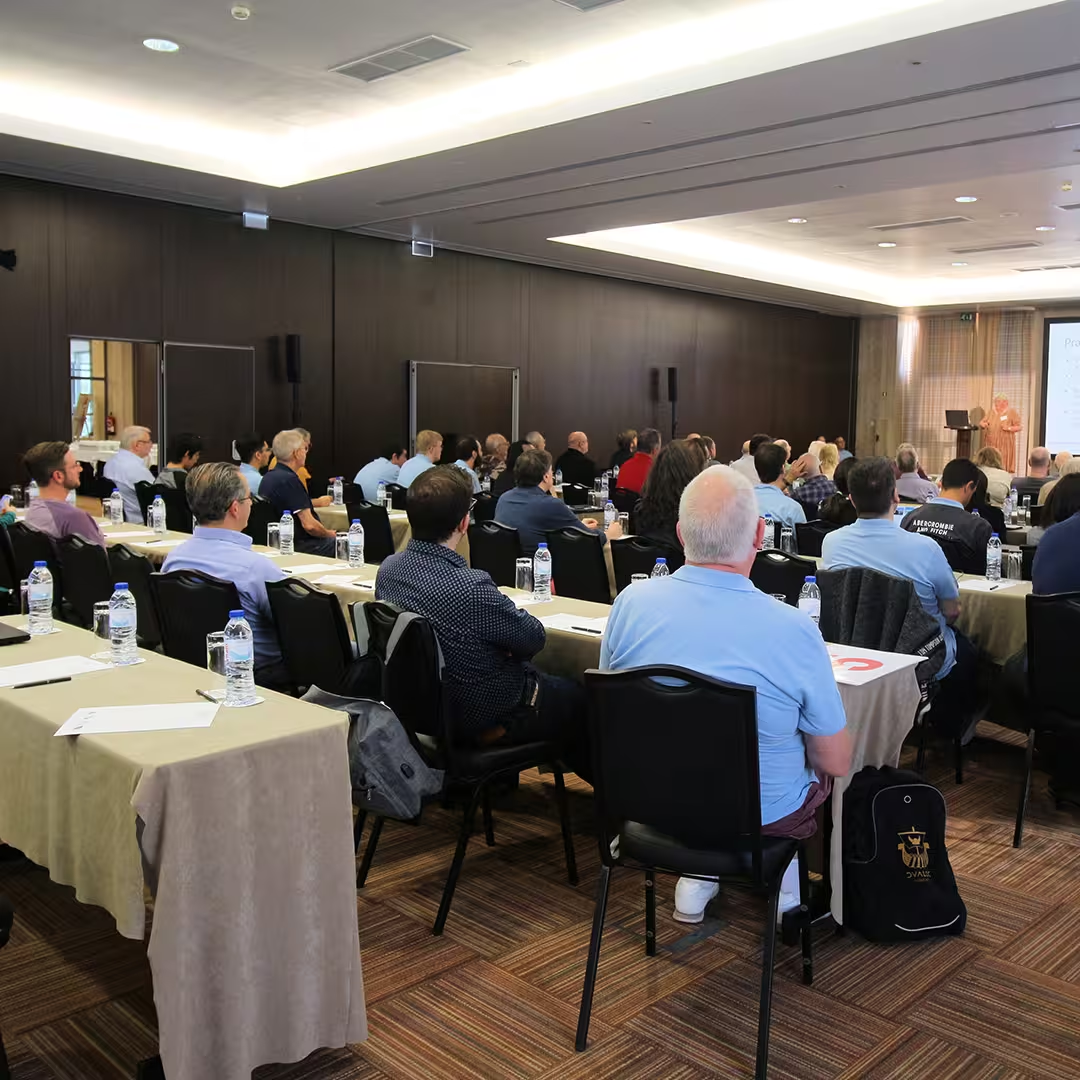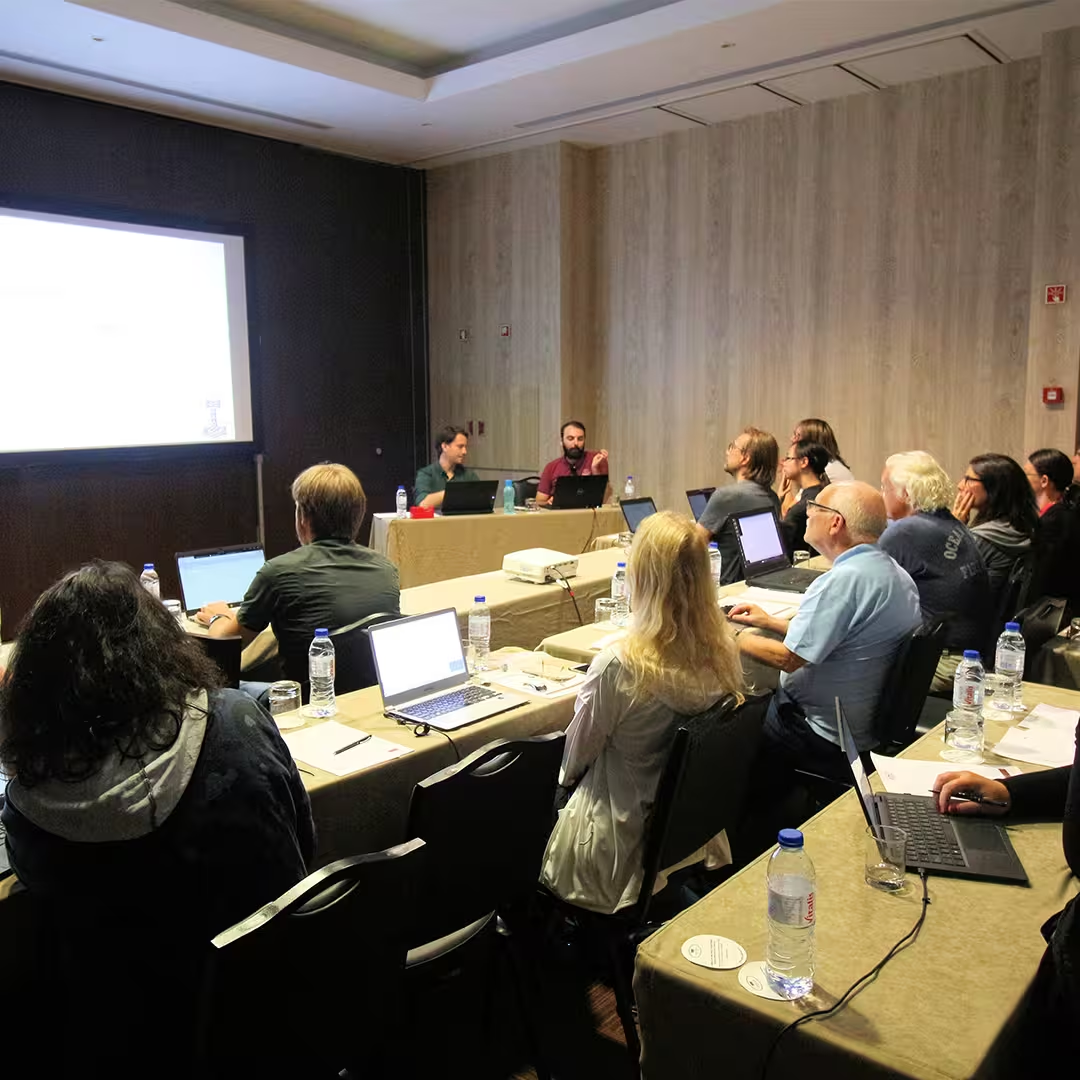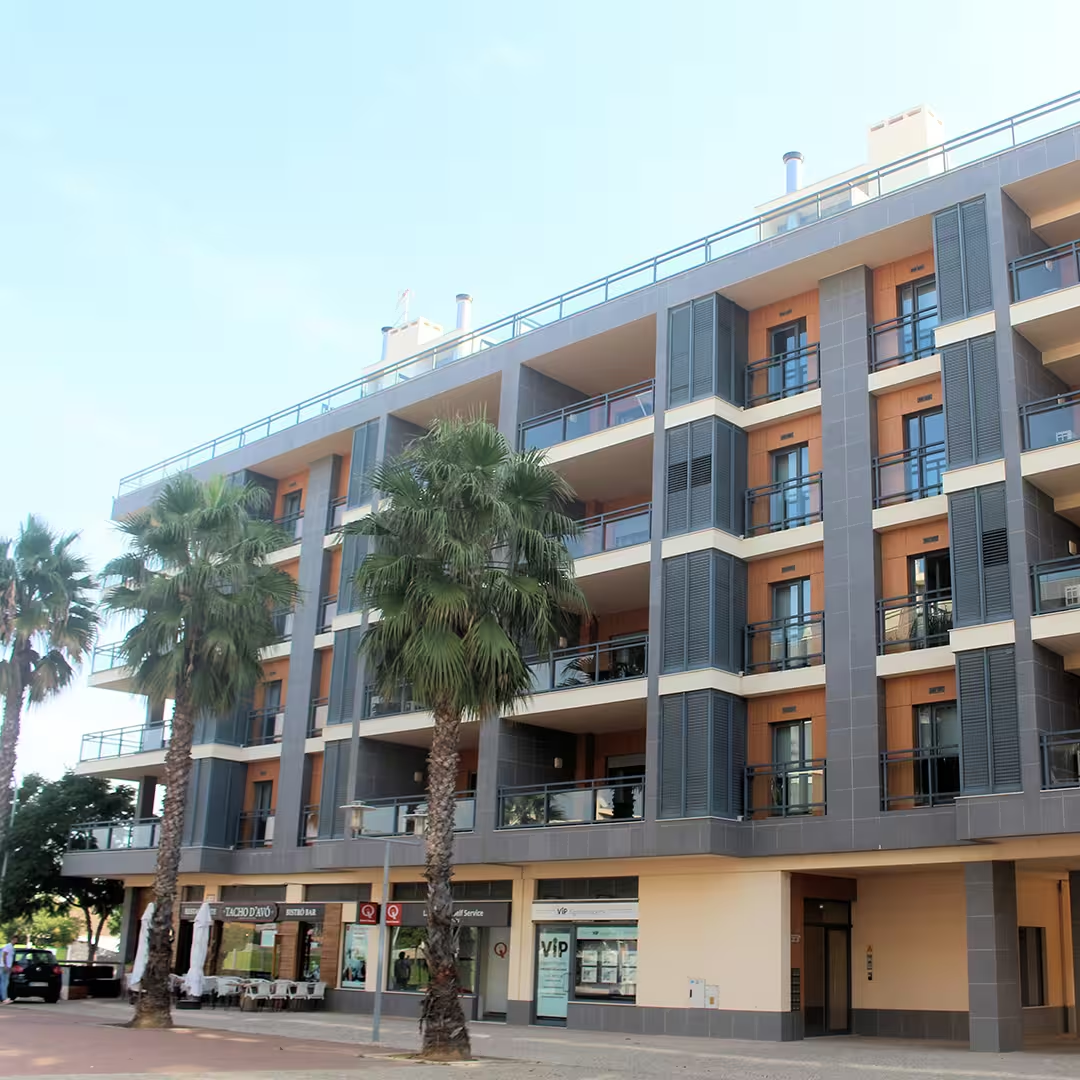Dyalog Presentations
D01: Welcome to Dyalog '22 summary | slides (PPTX) | slides (PDF) | video (18 mins)
Gitte Christensen, Managing Director (CEO) and Stine Kromberg
Dyalog Ltd's CEO opens the user meeting.
D02: The Road Ahead summary | slides (PPTX) | slides (PDF) | video (36 mins)
Morten Kromberg, Technical Director (CTO)
How might Dyalog evolve in the years to come, and which technologies should you be trying to keep an eye on yourself? Morten attempts to answer these questions, and sets the scene for the technical presentations being given at Dyalog '22.
D03: 2022 Conference Edition Part 1 – Past summary | slides (PPSX) | video (29 mins)
John Daintree
John has been noodling with some interesting things. In the first part of this series, he demonstrates some improvements to Dyalog's Session log.
D04: 2022 Conference Edition Part 2 – Present summary | video (32 mins)
John Daintree
Frustrated by function trains? Stymied by single line dfns? In the second part of this series, John demonstrates some new features that will take away some of your pain.
D05: The P words…Projects and Packages summary | slides (PPTX) | slides (PDF) | video (24 mins)
Morten Kromberg
Morten expressed his opinion that the growth of APL is hampered by a lack of widely-used libraries in an article he wrote for Vector in July 2003 (vol 20 issue 1), and his opinion has not changed since then. Has the tooling finally reached a point where off-the-shelf sample projects and shared libraries have become viable?
D06: APL9 from Outer Space summary | slides (PPTX) | slides (PDF) | video (24 mins)
Peter Mikkelsen
Peter is the most recent addition to the Dyalog interpreter development team. While he was still at Aalborg University, Peter implemented his own APL interpreter for the Plan9 operating system, a UNIX-like "distributed operating system" developed at Bell Labs in the 1980s. In this presentation, Peter demonstrates some of the more interesting features of APL9 and explains the presentation title...he might also mention a couple of the things he has been working on since joining Dyalog Ltd.
D07: Test Your Code! summary | slides (PPTX) | slides (PDF) | materials (ZIP) | video (27 mins)
Michael Baas
Testing APL Functions is sometimes seen as optional, as the functions are so small and self describing. Michael challenges that view, demonstrating some essential tools that are used internally within Dyalog Ltd (and are available to all users) to enhance the level of testing and, therefore, improve the quality of delivered code.
D08: Implementing the Convolutional Neural Network U-Net in APL summary | slides (PDF) | paper(PDF) | Research (GitHub) | video (23 mins)
Rodrigo Girão Serrão
The U-Net is an architecture of a convolutional neural network that is well-known in the machine learning literature. Rodrigo worked with Aaron Hsu on a paper about using APL to implement this architecture and experiment with it; in this presentation he explores the code base that they used.
D09: Performance Improvements in Set Operations summary | slides (PDF) | video (25 mins)
Karta Kooner
Dyalog version 18.0 introduced many useful performance enhancements, including some within the set-related primitives. Karta outlines the ongoing work that is being performed to understand what the performance profile of key primitives look like (beginning with the set-related primitives), discusses where performance gains can still be made, and describes how future evaluation of performance enhancements will be conducted by examining some of the shortcomings of the v18.0 performance work.
D10: 2022 Conference Edition Part 3 – Future(s) summary | slides (PPSX) | video part 1 (30 mins) | video part 2 (32 mins)
John Daintree
In the final part of this series, John explores some ideas for asynchronous programming in Dyalog.
D11: Report on Co-dfns summary | slides (PPTX) | slides (PDF) | video (20 mins)
Aaron Hsu
Aaron reviews the current state of Co-dfns (a high performance compiler for a parallel extension of the dfns language), developments since the last update (at Dyalog '19), and what the future might look like. He also explores how the Co-dfns compiler has been received in the broader computing communities and its impact on other projects.
D12: Simplifying Secure, Scalable Web Services summary | slides (PPTX) | slides (PDF) | video (30 mins)
Brian Becker
Jarvis is Dyalog's framework for the easy development of APL-based Web Services. Once your APL code running as a Web Service you might need to address additional considerations:
- Security – protecting your and your users' private information
- Availability – keeping your service running at all times
- Scalability – managing increases in demand
Brian introduces Jarvis, and discusses some options for running a secure, high-availability, scalable Web Service.
D13: How I Won the APL Problem Solving Competition – Introduction and Prize Ceremony summary | slides (PPTX) | slides (PDF) | video (12 mins)
Brian Becker
The 14th annual International APL Problem Solving Competition took place earlier this year. Brian summarises this year's contest and introduces the grand prize winner, culminating in the award ceremony.
D14: Text Processing in APL summary | slides (PPTX) | slides (PDF) | video (25 mins)
Aaron Hsu
APL has a reputation for being very good at numerical and financial types of calculations, but much of what modern data processing entails requires working with textual data of various sorts. Aaron discusses APL in the context of text processing, with an emphasis on parsing, architecture, and handling text-oriented applications.
D15: Filling the Core Language Gaps summary | slides (PPTX) | slides (PDF) | video (44 mins)
Adám Brudzewsky
Adám presents three proposed new primitives, and explains how their addition makes the language more complete. One complements the existing set of function composition operators, one generalises each in a manner similar to the powerful rank operator, and one supplies a functional form of the last remaining uses for square bracket indexing.
D16: Growing APLers summary | slides (PPTX) | slides (PDF) | video (21 mins)
Rich Park
Rich describes the need for (and ways to achieve) increasing and improving the resources that are available to help new users learn the basics of the language, utilise the many features of Dyalog, and develop their skills. He also discusses some of his experiences over the last year in training new and existing APLers.
